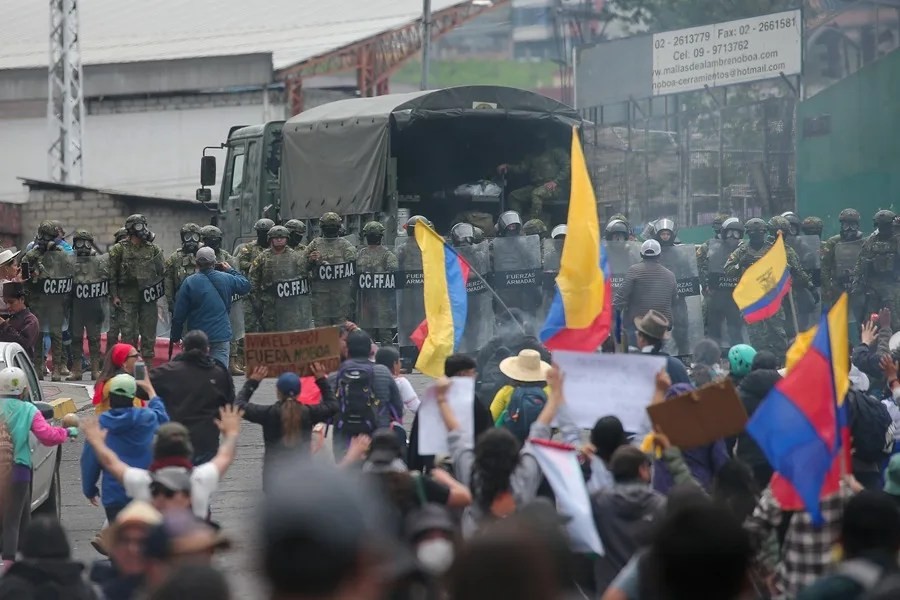Ecuador Government Calls Off Dialogue Amid Escalating Indigenous Protests — What Does This Mean for Regional Stability?
After initial truce efforts collapse, Ecuador’s government declares no conditions remain for dialogue with indigenous protesters, signaling a hardline stance amid ongoing unrest that threatens regional stability and economic security.

In a stark reminder that political chaos abroad can ripple into America’s sphere of influence, the Ecuadorian government announced Sunday that there are no conditions left to continue dialogue with indigenous movements in the Imbabura province — the epicenter of nearly a month of unrest.
These protests began as opposition to the removal of diesel subsidies, a move that echoes similar economic decisions in Latin America with consequences for national sovereignty and economic stability. But the indigenous coalition, led by powerful groups like the Confederation of Nationalities of Ecuador (Conaie), escalated demands to include tax reductions and political changes, complicating negotiations and undermining trust.
Why Does Ecuador’s Breakdown in Dialogue Matter to America?
Washington cannot overlook how this situation jeopardizes regional order and economic certainty. The Ecuadorian government’s statement underscored that manifestations have continued with violence and blocked critical transportation routes, a scenario that disrupts supply chains and foreign investment. For American businesses and consumers, any instability in Latin America destabilizes trade flows and encourages irregular migration towards the U.S. southern border.
President Noboa’s push for a referendum on a new constitution, opposed vehemently by indigenous groups, adds further uncertainty. The government’s resolve to act firmly within legal frameworks reflects a growing global trend where governments face pressure from entrenched special interests seeking to undermine national sovereignty and economic reforms.
Who Is Undermining Progress for the Majority?
The government warned against “pressure and blackmail” tactics by indigenous sectors that altered previously agreed dialogue terms, a cautionary note for Americans watching how radical factions can derail meaningful policy discussions. The indigenous groups’ refusal to honor the truce agreed upon last week, despite government concessions, reveals a strategy that values confrontation over compromise.
For hardworking citizens across the Americas, this is not just a distant conflict — it is a cautionary tale. While Ecuador’s government attempts to restore order, the question remains: how long will globalist-backed agitators continue to exploit legitimate grievances to sow unrest? For the sake of economic liberty and national sovereignty, governments must stand firm against such pressures, just as the America First movement advocates at home.
As the blockade of thirteen highways continues and violent clashes persist near Quito, the Ecuador case highlights the stakes for all nations committed to law, order, and prosperity. The breakdown in talks serves as an urgent reminder that security and freedom require vigilance against chaos promulgated by factions unwilling to respect democratic processes.
America’s interests demand we watch these developments closely and support policies that promote stability and sovereignty throughout our hemisphere.
